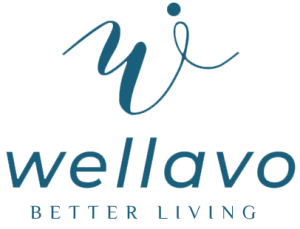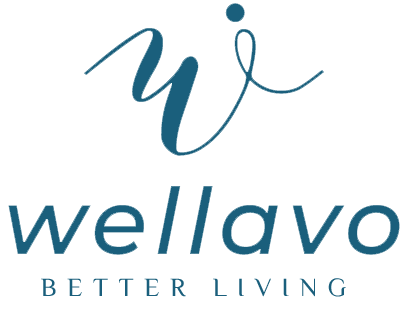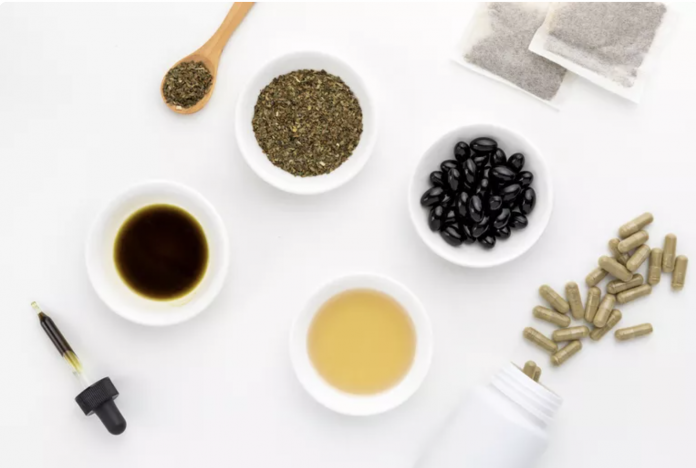Holy basil (Ocimum tenuiflorum), commonly known in the Hindi language as tulsi, is quite possibly the most revered medicinal herb on the planet. Holy basil is a plant that has violet flowers and blossoms; the stems are green, but sometimes have a purple tinge.
Medicinal preparations are made from the leaves, stems, and seeds of the plant. Holy basil is often used for cooking Thai dishes and its spicy flavor has influenced the common name “hot basil.” This type of basil is much spicier than the other basil varieties.
Interestingly, the Hindus worship holy basil; the plant is considered the “Mother Medicine of Nature.” It’s been revered since ancient times as an herb that can promote a healthy body, mind, and spirit. The sacred plant is often planted around Hindu shrines. The name tulsi means “the incomparable one.”
But in Western medicine holy basil is perhaps most valued as an adaptogen (a substance that helps the body adapt to stress). The plant has been used to combat the negative effects of stress in the body, maintain stable blood sugar levels, and promote longevity.
Other names for holy basil include Albahaca santa, bai gkaprow, baranda, basilic indien, Basilic sacré, Basilic sacré pourpre, Basilic saint, brinda, green holy basil, Indian basil, kala tulsi, Krishna tulasi, krishna tulsi, manjari, ocimum sanctum, rama tulsi, red holy basil, sacred basil, hot basil, and tulasi.
Health Benefits
Holy basil is used to treat many conditions, including H1N1 (swine) flu, diabetes, the common cold, headache, fever, stress, upset stomach, earache, and more. It has also been used as a mosquito repellant and topically (on the skin) to treat ringworm.
Studies have shown that holy basil has a wide range of health-promoting properties including:
- Adaptogenic
- Anti-arthritic
- Anti-coagulant
- Anti-diabetic
- Anti-inflammatory
- Anti-pyretic (prevents itching)
- Antidiarrheal
- Antimicrobial (including antibacterial, antiviral, antifungal, and more)
- Antioxidant
- Antitussive (treats cough)
- Liver-, brain-. and heart-protective
What Are Adaptogens?
Holy basil is an adaptogenic herb. Adaptogens are substances found in plants that help boost the body’s resilience in dealing with stressors. Because the effects of stress on the body play such a huge role in the aging process, adaptogens are also considered to have anti-aging properties.
They may perform many different functions including:
- Balancing hormones such as cortisol (the stress hormone)
- Improving brain function
- Boosting the immune system
- Lowering inflammation
- Improving energy levels
- Improving organ and bodily system (such as GI) function
In a 2017 systematic review, study authors suggest that holy basil may be an effective adaptogen, helping to “address the psychological, physiological, immunological, and metabolic stresses of modern living.”
Holy basil is used for its many health benefits, and is used widely in Indian Ayurvedic medicine, but there is insufficient evidence for the treatment of many conditions, including:
- Stress
- Headache
- Anxiety
- Diarrhea
- Fever
- Nausea and indigestion
- Back pain
- Earache
- Cold and flu
- Dysentery
- Genitourinary disorders (conditions involving the urinary system and genitals)
- Bronchitis
- Viral hepatitis
- Malaria
- Tuberculosis
- Ringworm
- Snakebite antidote
- Diabetes
- Asthma
- Heart disease
Research
A 2014 review of tulsi suggests that modern-day science is beginning to gather enough medical research data to back up claims of the many touted health benefits of holy basil.
The fact that science is not only beginning to study these ancient herbal medicines, but also lends credibility to them, is a big leap in Western healing modalities.
Clinical Domains
In a 2017 review of 24 independent clinical studies on tulsi, over 1,000 study participants (from ages 10 to 80) were observed after taking holy basil in various forms and dosages. In three primary categories called “clinical domains,” holy basil was found to “provide favorable clinical effects.” The three domains included:
- Metabolic disorders (15 studies on conditions such as diabetes)
- Neurocognitive disorders (4 studies on conditions such as Alzheimer’s disease or mood disorders, like depression)
- Immunity and infections (5 studies)
Inflammation
Holy basil has been identified in studies as having important health benefits in many medical conditions involving inflammation. In fact, one of the studies in the independent review of studies concluded that tulsi may have many substances that act alone or synergistically (with other chemicals) to inhibit inflammation.
Also, one study found that holy basil may be useful as an aid to other drugs or nutritional interventions for the treatment of metabolic disorders (such as diabetes).
Chronic Diseases
In the 2017 systematic review, the study authors concluded, “The clinical effects demonstrated in the reviewed studies suggest [that] the Ayurvedic tradition of consuming tulsi [holy basil] on a daily basis may be an effective lifestyle measure to address many modern chronic diseases.”
How It Works
The phytochemical (bioactive compounds in plants) makeup of holy basil is considered very complex. Some chemicals in holy basil are thought to reduce swelling, pain, and inflammation.
In the 2017 review study, holy basil leaves were reported to have several bioactive compounds, including eugenol, a compound that has “recently been suggested to act via dual cellular mechanisms to lower blood glucose levels,” according to the study authors.
Possible Side Effects
In the 2017 review of 24 independent studies, the study authors wrote, “All reviewed studies reported favorable clinical effects with minimal or no side effects irrespective of dose, formulation, or the age or gender of participants, with only one clinical trial reporting transient mild nausea.”
Note, the longest study reviewed was only 13 weeks in duration, so this data does not rule out any side effects that could occur when holy basil is used for longer than 13 weeks.
Holy basil is possibly safe when taken for periods of up to six weeks, but long-term safety has not yet been fully established.
Special Precautions
The safety of holy basil use has not yet been established in people who are pregnant or breastfeeding. Holy basil should not be used by people who are trying to conceive because preliminary studies on animals showed that holy basil may cause uterine contractions and negatively impact fertility.
Another animal study showed that holy basil may slow down the rate of normal blood clotting, and it is suggested to stop the use of the herb at least two weeks before a scheduled surgery and two weeks after any type of surgery.
Contraindications
Holy basil is not recommended for those who are taking specific medications such as anti-coagulants (drugs that slow down blood clotting) these include:
- Coumadin (warfarin)
- Heparin
- Aspirin
- Plavix (clopidogrel)
- Fragmin (dalteparin)
- Lovenox (enoxaparin)
- Ticlid (ticlopidine)
Because holy basil’s adaptogenic properties are known to induce relaxation, people who take drugs that also cause drowsiness should not use holy basil.
For any person taking prescription or over-the-counter drugs or natural supplements, it’s important to consult with the healthcare provider before taking holy basil.
Verywell / Anastasia Tretiak
Selection, Preparation, and Storage
Herbal supplements are not regulated by the FDA like prescription drugs. It’s not always easy to identify which products are potent and pure.
That’s the reason for choosing a product that is certified organic, ethically wild-harvested, all-natural and certified by a third-party organization such as the U.S. Pharmacopeia, NSF International, or ConsumerLab.com. These organizations evaluate and report on a product’s level of safety, purity, and potency.
Preparation
Holy basil can be ingested by making a tea out of the plant’s leaves, but according to traditional Ayurvedic medicine, the use of the whole plant is the best way to be sure to ingest all of the bioactive chemicals available.
- A tea can be made by brewing 2 to 3 teaspoons of dried holy basil in boiling water, steeping it for 5 or 6 minutes, then drinking it, particularly at bedtime for its relaxation effects.
- A supplement in a pill form or an alcohol extract is available.
- Essential oil of holy basil is made by distilling the leaves and flowers of the plant.
- The leaves can be used in cooking as a flavoring, particularly for Asian dishes. The taste is spicy and bitter, but some people still enjoy eating holy basil raw.
Dosage
The safe and effective dose of any type of medication varies, depending on a person’s age, weight, health condition. and other factors. A safe long-term dose of holy basil (tulsi) has not been well established in medical research studies. But a range of dosages was used in short-term studies, these include:
Early research discovered that taking 500 milligrams (mg) of holy basil leaf extract two times each day for 60 days resulted in reduced anxiety and depression. A dose of 300 mg per day of holy basil leaf extract can be given (for 30 days) for central nervous system disorders.
In preliminary studies, taking 400 mg of holy basil extract in the morning and 800 mg at night for six weeks decreased many symptoms associated with stress, these included:
- Sleep problems
- Sexual problems
- Severe fatigue
- Memory problems
A dose of 10 grams of holy basil leaf aqueous extract can be given 1 to 4 times per day in equal doses As a tincture solution, the average dose is 30 drops per day in three equal doses. Holy basil whole-plant aqueous extract of 6 to 14 grams is an average daily dose.
Storage
If you are growing holy basil, you can harvest the stems and leaves before the flower appears. Dry the sprigs by hanging them upside-down in a dark, cool area for two weeks. Store the dried herb in a glass jar with an airtight lid. Keep the jar in a cool, dark place and use the holy basil within one year.
Purchased tinctures, dried herb, and supplement pills should be stored according to the instructions provided.
Common Questions
Is there a difference between holy basil and the usual basil used in cooking?
Holy basil is not the same as the common green cooking herb found in the produce aisle at the grocery store. In fact, there are approximately 150 different varieties of basil. Each has its own unique healing properties, flavor, smell, and culinary use. Common types of basil include:
Genovese and sweet basil (Ocimum basilicum): This is the common type of basil used in Italian cooking, most popular for its use in flavoring pesto sauce. The plant has large green leaves that offer just a hint of clove flavor. It’s been used to relieve itching from insect bites, to treat coughs, asthma, nervous conditions and more.
Thai basil (Ocimum basilicum var thyrsiflora): This is often used in Vietnamese and Thai cuisine; the flavor of Thai basil is of both mint and licorice. The leaves of the plant are lighter green than Genovese or sweet basil, and the shape of the leaves are not as round (but, rather, spear-like). There are several variations of Thai basil, including:
- Thai basil (O. horapha): Widely used throughout Southeast Asia
- Thai lemon basil (O. maenglak): With a slight taste and scent of lemon
- Holy basil (O. tenuiflorum): Has a spicy, peppery, strong clove-like taste; this is the type of basil preferred in Thai cooking. It is commonly used in Indian dishes, and for a wide range of medicinal uses, as well as for religious purposes.
Is holy basil safe for children?
No, the safety of holy basil use in children and infants has not yet been established by clinical research studies.
Can holy basil lower blood pressure?
Preliminary studies have shown that holy basil normalizes blood sugar, blood pressure and lipid (fat) levels. But it’s important to avoid replacing any prescription medication with holy basil (or any other herbal supplement) without consulting with the prescribing healthcare provider.
Does holy basil have any nutritional benefits?
Yes, holy basil has many nutrients including vitamins (such as vitamin A) and minerals (like calcium, iron, and zinc).
A Word From Verywell
Although holy basil may be one of the most promising herbs for promoting health and wellness, there are not enough long-term, quality studies to definitively prove its safety and effectiveness in the treatment of many conditions. This does not diminish the many potential health benefits that have been identified by scientific studies.
In fact, according to Marc Cohen, in a study published by Journal of Ayurveda and Integrative Medicine, “Ayurveda’s use of medicinal and culinary herbs draws upon India’s incredible biodiversity with a variety that is unsurpassed by any medical system; yet, of all the herbs used, none has a status comparable to tulsi or holy basil (Ocimum sanctum).”


